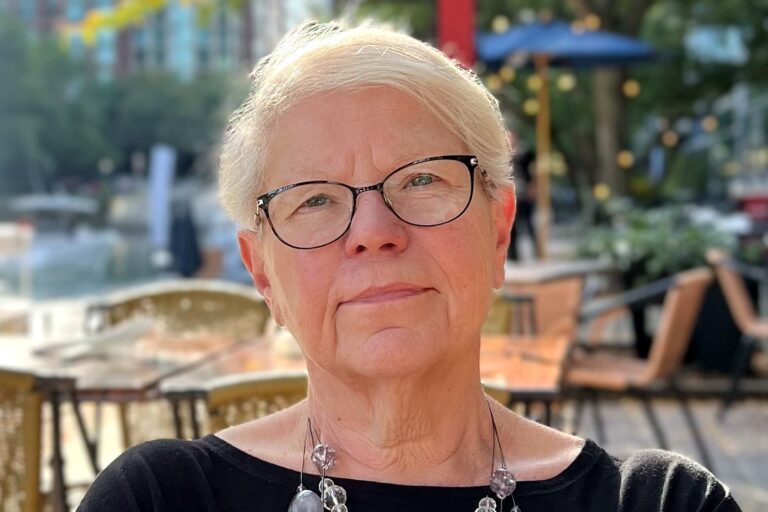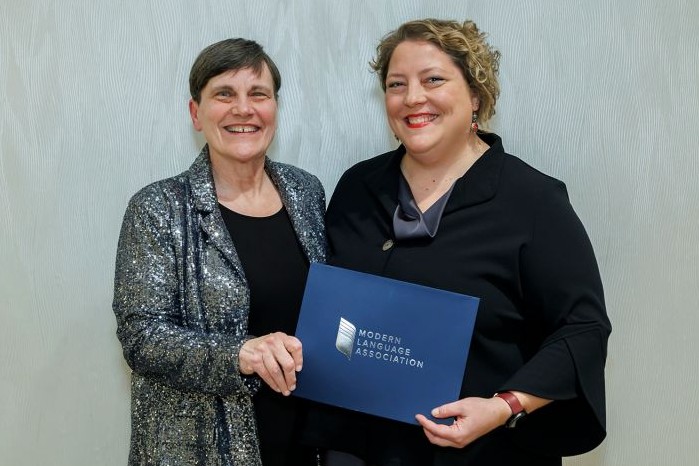A new podcast produced with the support of Michigan State University’s (MSU) Center for Teaching and Learning Innovation (CTLI) is changing the way educators talk about language, culture, and classroom instruction. Through the Language Lens, created and hosted by Jared Kubokawa, invites university educators to explore research-informed strategies for supporting multilingual learners and multilingual instructors in higher education.

Kubokawa, a doctoral candidate in the Second Language Studies program at MSU and an English Language Consultant and Instructional Coach, developed the podcast as part of his 2025 CTLI Graduate Fellows project. The fellowship provided Kubokawa with funding, mentorship, and production resources through the CTLI recording studio. “I wanted to create something flexible and engaging for instructors across disciplines—especially those who may not have the time or resources to attend traditional professional development,” said Kubokawa. “A podcast felt like the perfect format to bring lived experience, research, and pedagogy into a conversation that faculty could join on their own terms.”

Episode Highlights
Episode 1: Foundations for Supporting English Learners in Content Classrooms
Joined by special guest and doctoral candidate in second language studies, April Eve Day, Kubokawa and Day lay the groundwork for asset-based teaching approaches by identifying key challenges multilingual students face in content-heavy university courses. The episode outlines practical strategies such as scaffolding academic language, using multimodal instruction, creating consistency in lesson planning and delivery, and designing assessments that allow all students to demonstrate understanding. It ends with a reflection on mindset shifts that support equitable participation without compromising academic rigor.

Episode 2: Teaching Across Languages and Cultures — The ITA Experience
This episode turns the focus toward international teaching assistants (ITAs) and other multilingual faculty. Drawing from research, classroom realities, and lived experiences, the episode highlights the biases, challenges, and leadership potential of multilingual educators. Kubokawa is joined by special guest JoAnne Cheng, a doctoral student in the second language studies program originally from Taiwan who shares her experiences navigating linguistic and cultural norms within U.S. classrooms.

Episode 3: Language, Logic, and Labs — Supporting Multilingual Learners in STEM
Grounded in work on disciplinary literacy, this episode focuses on STEM classrooms as linguistically rich spaces that often present hidden barriers to multilingual learners. The episode provides strategies for STEM instructors to explicitly teach disciplinary language, normalize clarification, and create flexible pathways for students to demonstrate knowledge. Joined by Dr. Rob Stephenson, host of WKAR’s “Curious Crew” and a STEM Consultant and Instructional Coach, they discuss how multilingual and multicultural perspectives strengthen scientific thinking.

A Tool for the Field
Through the Language Lens has already gained traction among faculty developers, university educators and graduate instructors looking to make their classrooms more accessible to multilingual learners. Companion resources such as transcripts, top ten strategy lists, and quote cards are available with each episode if teacher educators are interested in using the podcast as teaching materials.
The podcast is currently streaming on all major platforms including Spotify and Apple Podcasts. Future episodes will continue to explore topics such as culturally responsive teaching, linguistic justice, and student identity. “This podcast shows that multilingualism is not a barrier, but a strength,” said Kubokawa. “When we look through the language lens, we don’t just improve teaching—we transform how students experience learning.”


